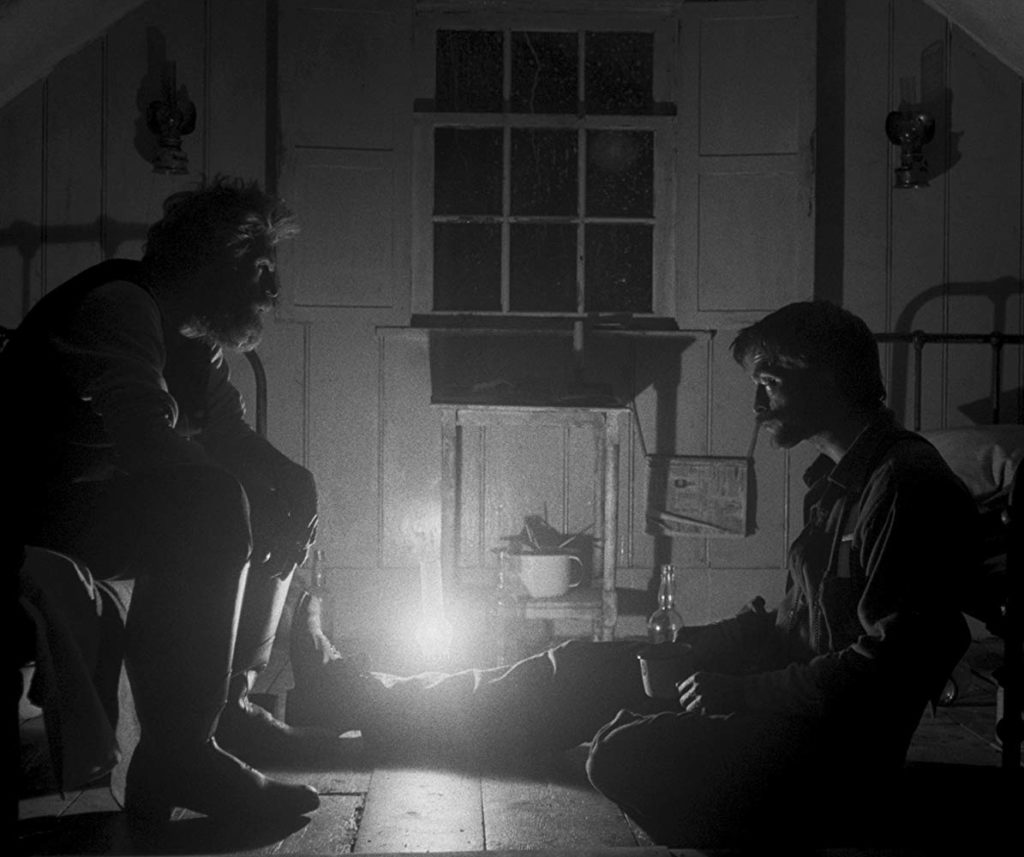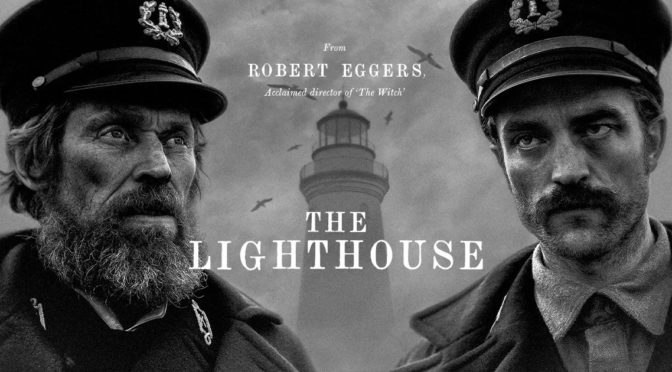Refusing to fit the mold of standard horror films, Robert Eggers (The Witch) has created another hyper-specific period piece, albeit with poor results. Winslow (Robert Pattinson; Good Time) is brought to a remote island to work as a lighthouse keeper under the supervision of Wake (Willem Dafoe; The Florida Project). The men begin a terse working relationship, but animosity grows as the two develop suspicions about each other’s intentions.
If nothing else, the film is devoted to its aesthetic. Eggers, a former production designer, has created a world worn down by the ocean. The lighthouse has a brick façade with weathered paint and the ramshackle house they live in is cramped and broken-down. The buildings are built for functionality, not comfort and it adds to the prison-like feeling of the location. Eggers also chooses to avoid modern conventions by neither shooting his film in color nor in widescreen to add to the period’s authenticity. While other filmmakers often use black and white out of nostalgia or beauty, Eggers uses it for its harshness. The visuals are in the vein of German Expressionism and hint at the potential for insanity, even if the film isn’t able to add meaning to that insanity.

Pattinson and Dafoe carry nearly the entire film and are fully invested in their roles. Neither Winslow nor Wake seem like the kind of people anyone would want to be stuck on a remote island with. Both appear to be hiding some part of their past. Pattinson’s Winslow is, comparatively, the relatable character. He wants to avoid small talk or drinking and focus on the work ahead until their tour of duty is over. Dafoe’s Wake has other interests in mind. He is cranky, impulsive, and enjoys his power over Winslow as he demeans him and has him slave over difficult, unnecessary tasks for his own sadistic pleasure. There are moments when he appears to be kind as he invites Winslow to drink with him, but behind each of these actions is a short, potentially dangerous temper. His impulsiveness and cruelty is what allows for the Winslow’s suspicions to form.
Eggers uses the dynamic between Winslow and Wake and their isolation to fuel to film’s mystery. As Winslow is mistreated by Wake, he begins to doubt Wake’s intentions. He suspects that Wake is hiding something from him when he refuses to let him onto the top floor of the lighthouse. Additionally, in his loneliness, Winslow begins to see strange occurrences like animals behaving oddly and images that may or may not be hallucinations. The unknown combined with the potentially unhinged thoughts lead to several strange scenes of erratic behavior that range from rude to oddly humorous to aggressive. As unique as the situations may be, the film’s failing is that these moments don’t progressively build on each other. They instead feel like only partially connected abnormalities. In The Witch, a film that was also built on mistrust with a potentially supernatural bent, every scene escalated the story’s tension in a cohesive direction that built to a conclusion in line with the bizarre events that preceded it. In The Lighthouse, committed performances and distinctive visuals can’t save a narrative that never unites its unusual digressions to create tension, horror, or an ending that gives meaning to the bizarre occurrences.

2/5 stars.
